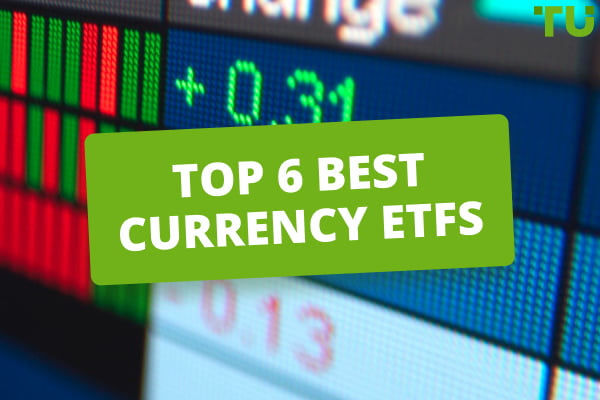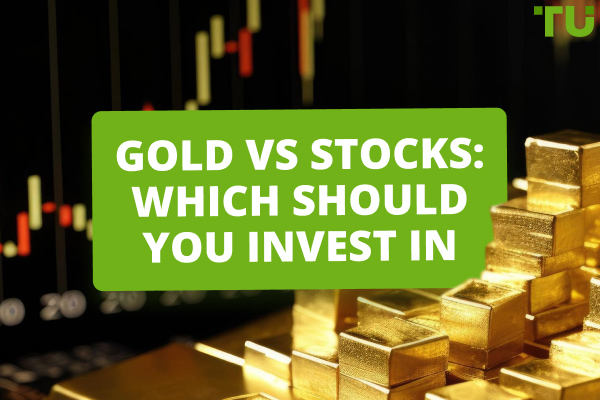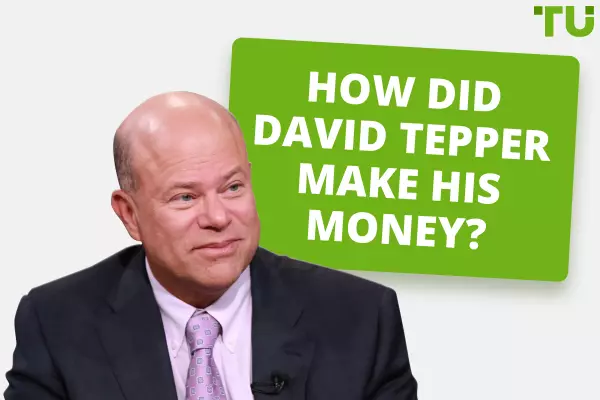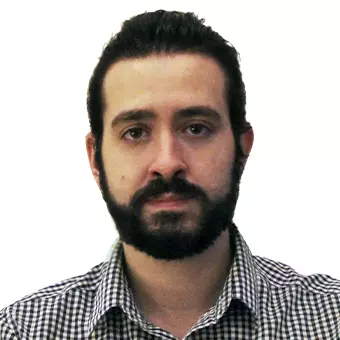Richest Hedge Fund Managers in the world
Richest hedge fund managers in the world:
-
1
Ken Griffin - Net worth: $36.9 billion
-
2
Jim Simons - Net worth: $28.10 billion
-
3
Ray Dalio - Net worth: $19.4 billion
-
4
David Tepper - Net worth: $20.6 billion
-
5
Steve Cohen - Net worth: $17.52 billion
Hedge funds are pooled investments that trade mostly liquid assets in order to make above-average profits. Because hedge funds are responsible for huge sums of wealth, they require experienced managers with a deep understanding of the market, who can turn investments into consistent returns. In this article we’ll be looking at some of the richest and most successful hedge fund managers in the world, along with their inspirational stories of success, the strategies adopted by their firms and themselves, and how much top hedge fund managers make.
Do you want to start trading Forex? Open an account on RoboForex!Top hedge fund managers - Secrets & Life Stories
Ken Griffin
Ken Griffin is the 32nd richest person in the world and chief executive of Miami-based Citadel Advisors, a hedge fund firm which manages roughly $52 billion in assets as of 2022, according to Bloomberg. Griffin himself has about $9 billion in personal assets within Citadel, and a net worth of $36.9 billion.
While studying economics at Harvard University, Griffin began trading convertible bonds from his dorm room in 1987, starting with $265,000 he received from his family. After graduating in 1989, he moved to Chicago to work for Glenwood Capital founder Mark Meyer, before opening his own hedge fund Wellington Financial Group with $4.6 million in 1990.
He renamed Wellington “Citadel” in 1994, and over the next ten years delivered an annual return of more than 25 percent to investors, managing funds in equities, commodities, fixed income, quantitative strategies, and credit. Griffin also went on to form Citadel securities in 2002, which is now one of the largest market makers in the world and generated $7.5 billion in revenue in 2022.
Jim Simons
Jim Simons is the founder of Renaissance Technologies, a respected quantitative hedge fund firm that manages an estimated $50 billion.
Simons received a PhD in mathematics at Berkeley in 1962, going on to undertake pioneering work related to geometry and quantum theory. His expertise in pattern recognition and mathematics led to working with NSA, and IBM, before forming Renaissance in 1982.
Renaissance Technologies employs mathematical models to analyze and execute trades and specializes in systematic trading using quantitative methods derived from statistical analysis. Simons’ deep understanding of economics and mathematics led to Renaissance’s success and him being described as “the best money manager on Earth”.
Simons ran the firm until retiring at age 71. He has given more than $2.7 billion to philanthropic causes and founded the charity organization The Simons Foundation as well as Math for America.
At age 85, Simons is the 46th richest person in the world, and number 25 on the Forbes 400 list.
Ray Dalio
Ray Dalio is a prominent hedge fund manager and the founder of Bridgewater Associates, which manages assets exceeding $124 billion, making it the largest hedge fund management firm globally. Forbes puts Dalio's personal net worth at $15.4 billion.
Dalio was always chasing financial aspirations. As a child he worked multiple odd jobs and began investing at age 12. Though an average student at high school, he was academically successful at college, trading in his spare time and eventually discovering commodity futures. He went on to study at Harvard Business School, forming the first version of Bridgewater with his friends in his first year, which failed.
After graduating, Dalio started a family, working at various banking and investment firms. He built up a trusting client base and scraped together enough funding to revive the once failed Bridgewater Associates in 1975.
Bridgewater's success strategy relies on systematic and quantitative analysis of macroeconomic trends, which allows them to make informed investment decisions. Their approach to risk management and portfolio diversification is also fundamental to their success. Additionally, Dalio has been an advocate for understanding economic cycles, which has helped Bridgewater navigate various market conditions successfully.
David Tepper
David Tepper is a 66-year-old American business professional, hedge fund manager and owner of the Carolina Panthers football team. With a personal net worth of $20.6 billion, he’s the 100th richest person in the world.
Tepper collected baseball cards as a child, memorizing their statistics, and was trading penny stocks by high school. While studying economics, he developed a system for buying and selling options to pay for his college fees. After graduating with a master’s in industrial administration, Tepper worked at Republic Steel and Goldman Sachs’s junk bond desk, giving him experience working with distressed debt.
He formed the hedge fund firm Appaloosa Management in 1993, which today is known for its flexible and opportunistic approach to investing in distressed assets, as well as its focus on macroeconomic trends and market conditions. Appaloosa manages $13 billion in assets as of 2023.
Steve Cohen
Steve Cohen’s story is a controversial one. As the founder of two hedge fund firms (one now defunct), with a net worth of $19.8 billion, he’s seen his share of ups and downs.
Cohen grew up in New York, where he discovered a love for poker, which taught him to take risks. He studied economics at Pennsylvania University, opening a brokerage account while there, before graduating in 1978 and going to Wall Street to work as a junior trader at Gruntal & Co. where he was managing a $75 million portfolio and six traders by 1984. His success there already put him on the SEC’s radar.
In 1992, Cohen founded S.A.C. Capital Advisors, which was managing $14 billion by 2009.
Following a series of lawsuits for insider trading and racketeering, S.A.C. lost $616 million that year, and after further charges, $1.8 billion in 2013 in what was called “the most profitable insider-trading conspiracy in history” by prosecutors. Cohen himself was prohibited from managing outside money until 2016.
In 2014, Cohen transferred S.A.C.’s capital to his new venture, Point72 Asset Management. Point72 invests in long/short equity, systematic, global macro, and venture capital. After reopening itself to investors in 2018, the fund now manages $27.2 billion.
Michael Platt
Michael Platt is the British 55-year-old CEO and co-founder of BlueCrest Capital Management. BlueCrest is Europe’s third biggest hedge fund, managing over $86 billion.
Platt studied mathematics and economics at London School of Economics and found an early love for investing, after his grandmother provided him with capital and taught him about trading. He discovered his talent for trading while rising through the ranks of JP Morgan before founding BlueCrest with William Reeves in 2000.
BlueCrest focuses on fixed income macro trading. Their systematic trades use general trend-following strategies, buying assets that are moving up, and selling falling ones. Pratt strongly believes in utilizing aggressive stop-losses. The investment firm has posted consistently high returns and set a record with their 114% gains in 2022.
Alan Howard
British billionaire Alan Howard has a net worth of $3.6 billion and is the cofounder of Brevan Howard Asset Management, a European firm that manages $26 billion in assets as of October 2022, according to Bloomberg.
After obtaining a master’s degree in engineering, Howard worked at Salomon Brothers investment bank, and worked in the ECU Eurobond market. He later served on the New York Federal Reserve's advisory committee for investors before starting Brevan Howard in 2002. The hedge fund management company was once described as one of the largest macro hedge funds after it reached a peak fund of $40 billion in 2013.
Brevan Howard specializes in macro trading and high turnover is part of their business model. In 2012, Bloomberg reported that traders at the firm are cut if they don’t meet the company’s high standards. Those traders have been said to become stars at their next firms, indicating Brevan Howard’s unusually high standards. Their commitment to high returns allowed them to post a 99% gain in 2022.
Chase Coleman
Charles Payson “Chase” Coleman III is the founder of $75 billion hedge fund Tiger Global Management LLC, and has a personal net worth of $5.7 billion, as reported by Forbes. At 48 years old, he’s the youngest person on this list.
Coleman graduated from Williams College in 1997 and started his investment career working for hedge fund legend Julian Robertson at his hedge fund, Tiger Management, which closed in 2000. When Robertson closed his fund, he split much of his wealth amongst his 30 “Tiger cubs” - fund managers who had started their investment careers with Tiger Management. Chase Coleman used part of his $25 million fund to start Tiger Global Management LLC in 2001.
Tiger Global mainly invests in internet, software, consumer, and financial technology, and was one of the early investors in Facebook and LinkedIn. Chase Coleman’s strategy towards trading through Tiger Global is based on significant long-term investments in companies they believe to have substantial growth potential. Tiger Global Management has a diverse portfolio across various sectors and asset classes.
Andreas Halvorsen
Last but not least is Andreas Halvorsen, the co-founder and CEO of Connecticut-based hedge fund Viking Global Investors, which Forbes reports as managing $37 billion in assets.
Halvorsen spent his early years as the leader of a Norwegian Navy SEAL after graduating from the Norwegian Naval Academy. He then went on to study economics at Williams College and received an MBA in business from Stanford University at age 29. He worked at Morgan Stanley, and then Tiger Management, where he became a “Tiger Cub”, before forming Viking Global Investors in 1999.
Halvorsen's investment strategy combines fundamental analysis and a focus on long/short equity positions. Viking Global’s main areas of operations are in public equity and international hedge funds. They’re known for their deep research, identifying investment opportunities in various sectors, including technology, healthcare, and consumer goods. They utilize rigorous risk management practices and have achieved consistent returns, making Halvorsen a respected figure in the hedge fund industry.
Can buying stocks make you rich?
The short answer is yes. Investing in the stock market is one of the most reliable and proven ways to increase your own personal net worth. As was the case with all the hedge fund managers’ success stories listed above, getting involved in asset trading can even lead to eventual membership in the “billionaire club”. Of course, not everybody is guaranteed to have as much success as hedge fund managers on the Forbes Rich List, but if a person’s goal is to become rich, buying stocks is the most dependable way to do that.
Investment options in the stock market
There are various types of investment options to choose from when beginning your trading career or investment plan. Each investment type has its own advantages and disadvantages, so it’s crucial to choose an approach that works for your financial goals.
Direct stock investing
A direct stock purchase plan cuts out the broker and allows individuals to buy a stock straight from the company. They require little money to get started and involve no fees or small fees. They’re a good path for long-term investors to acquire shares over time.
Mutual Funds
A mutual fund is like a basket where many investors put their money together to buy a variety of assets, like stocks or bonds. A professional manager makes decisions on what to trade, to help the investors make a profit. When you invest in a mutual fund, you own a small part of the whole basket, which spreads your risk. It's an easy way for regular people to invest in a diverse range of assets without having to pick individual investments themselves.
Exchange-Traded Funds (ETFs)
Exchange-Traded Funds, or ETFs, are pre-selected bundles of assets that you can invest in through a brokerage firm or stock exchange. It’s a type of pooled investment security fund that works like a mutual fund, except its price fluctuates all day as the ETF is bought and sold. ETFs typically track a specific market like the FTSE 100, but across different sectors, which helps to diversify your portfolio and lower risk and exposure.
Index Funds
An index fund is a type of mutual fund that’s similar to an ETF. It’s a diversified, low-cost investment in a range of assets that correspond to a specific market, like the S&P 500, and provides long-term returns. The difference is that an index fund can only be bought or sold at the price set at the end of the trading day, requires a higher minimum investment, and has less trading fees. Index funds are preferable for long-term investors, whereas ETFs suit day traders better.
Dividend Reinvestment Plans (DRIPs)
A Dividend Reinvestment Plan (DRIP) involves using dividend payments to buy up more shares in the company or fund that issued the dividend. This allows investors to compound their gains and own more shares of a company over a long period of time. Let’s say you bought 100 shares of Microsoft in 1990 at $21. If you followed a DRIP strategy, only reinvesting dividend payments back into Microsoft and not buying any other stocks or tapping into outside capital, today you’d have 1200 shares (due to multiple stock splits) at $317 per share, worth $380,400.
Options Trading
Options trading allows investors to speculate on the direction the overall market or individual stocks and bonds will move in the future. They predict whether it will go up (call option) or down (put option) by a particular date. Options traders pay a fee (premium) for their bet. If they're right, they can buy or sell the stock at a pre-agreed price, potentially making a profit. If they're wrong, they lose the premium. Options offer flexibility but involve risks, so it's important to understand them before trading.
How to improve the efficiency of earning on stocks
Improving the efficiency of earning on stocks involves a combination of several things, including but not limited to: education, research, and disciplined strategies. Follow these simple but important steps to invest more efficiently:
-
Learn the basics: Develop a solid understanding of how the stock market operates. Learn the key terms, concepts and investment types
-
Study companies: Research and analyze companies before making investments. Understand their growth potential, competitive advantages and what industries they are present in
-
Diversify: Invest in a variety of stocks across different sectors to minimize your sensitivity to market changes, decreasing your risk
-
Employ risk management: Set a personal budget and stick to it. Use stop-loss to limit losses
-
Think long-term: Invest with the intention of holding stocks for years, so they can grow over time. It’s difficult to predict short-term market action
Before beginning trading with real capital, it’s vital to understand the ins and outs of stock trading. See our beginner’s guide to trading for more tips and information about getting started.
Top 3 stock brokers
eToro
The eToro broker was founded in 2007. The company promotes itself as a social trading platform working with traders from over 140 countries. The broker has several divisions operating under different jurisdictions and licensed by different regulators. For example, eToro (Europe) is licensed by the Cypriot regulator CySEC (109/10) and eToro (UK) is licensed by the British regulator FCA (583263). The broker also has a representative office in Australia and the USA.
eOption
The eOption broker (eoption.com) is an American stockbroker headquartered in Glenview, Illinois. It has been operating since 2007 and is a member of FINRA and SIPC. It specializes in options trading and also acts as an intermediary in trades involving the popular securities classes. The company offers low trading commissions, super-fast execution of orders, and modern platforms with an advanced set of analytical tools. In 2020-2021, eOption was recognized as the best options broker by several resources such as Investopedia, The Tokenist, Benzinga, Investormint, and NerdWallet.
DEGIRO
DEGIRO is a Dutch investment company operating since 2008. The broker has been providing online services since 2013. Today DEGIRO is headquartered in Amsterdam and has offices in 18 European countries. Its activities are controlled by the Financial Conduct Authority (FCA), as well as regulators in the Netherlands: Financial Markets Authority (AFM) and Central Bank (DNB). DEGIRO was awarded over 86 international awards: financial publications of Germany, France, Denmark, and the Netherlands have repeatedly recognized the company as the best stock market broker.
FAQs
Who is the most successful hedge fund manager?
According to Bloomberg, Ken Griffin made $4.1 billion in 2022, despite an overall bear market. His hedge fund firm Citadel reported a record profit of $16 billion in the same year.
Who is the highest paid hedge fund portfolio manager?
Forbes reports that the highest paid hedge fund manager as of 2024 is Ken Griffin, who has a net worth of $35 billion.
Who is the godfather of hedge funds?
Julian Robertson of Tiger Management has often been called the ‘godfather’ of hedge funds, or the ‘Wizard of Wall Street’.
Do billionaires use hedge funds?
Yes. Billionaires can afford large investments and higher risk, and so control a substantial portion of overall hedge fund assets.
Team that worked on the article
Jason Law is a freelance writer and journalist and a Traders Union website contributor. While his main areas of expertise are currently finance and investing, he’s also a generalist writer covering news, current events, and travel.
Jason’s experience includes being an editor for South24 News and writing for the Vietnam Times newspaper. He is also an avid investor and an active stock and cryptocurrency trader with several years of experience.
Dr. BJ Johnson is a PhD in English Language and an editor with over 15 years of experience. He earned his degree in English Language in the U.S and the UK. In 2020, Dr. Johnson joined the Traders Union team. Since then, he has created over 100 exclusive articles and edited over 300 articles of other authors.
The topics he covers include trading signals, cryptocurrencies, Forex brokers, stock brokers, expert advisors, binary options. He has also worked on the ratings of brokers and many other materials.
Dr. BJ Johnson’s motto: It always seems impossible until it’s done. You can do it.
Mirjan Hipolito is a journalist and news editor at Traders Union. She is an expert crypto writer with five years of experience in the financial markets. Her specialties are daily market news, price predictions, and Initial Coin Offerings (ICO). Mirjan is a cryptocurrency and stock trader. This deep understanding of the finance sector allows her to create informative and engaging content that helps readers easily navigate the complexities of the crypto world.











